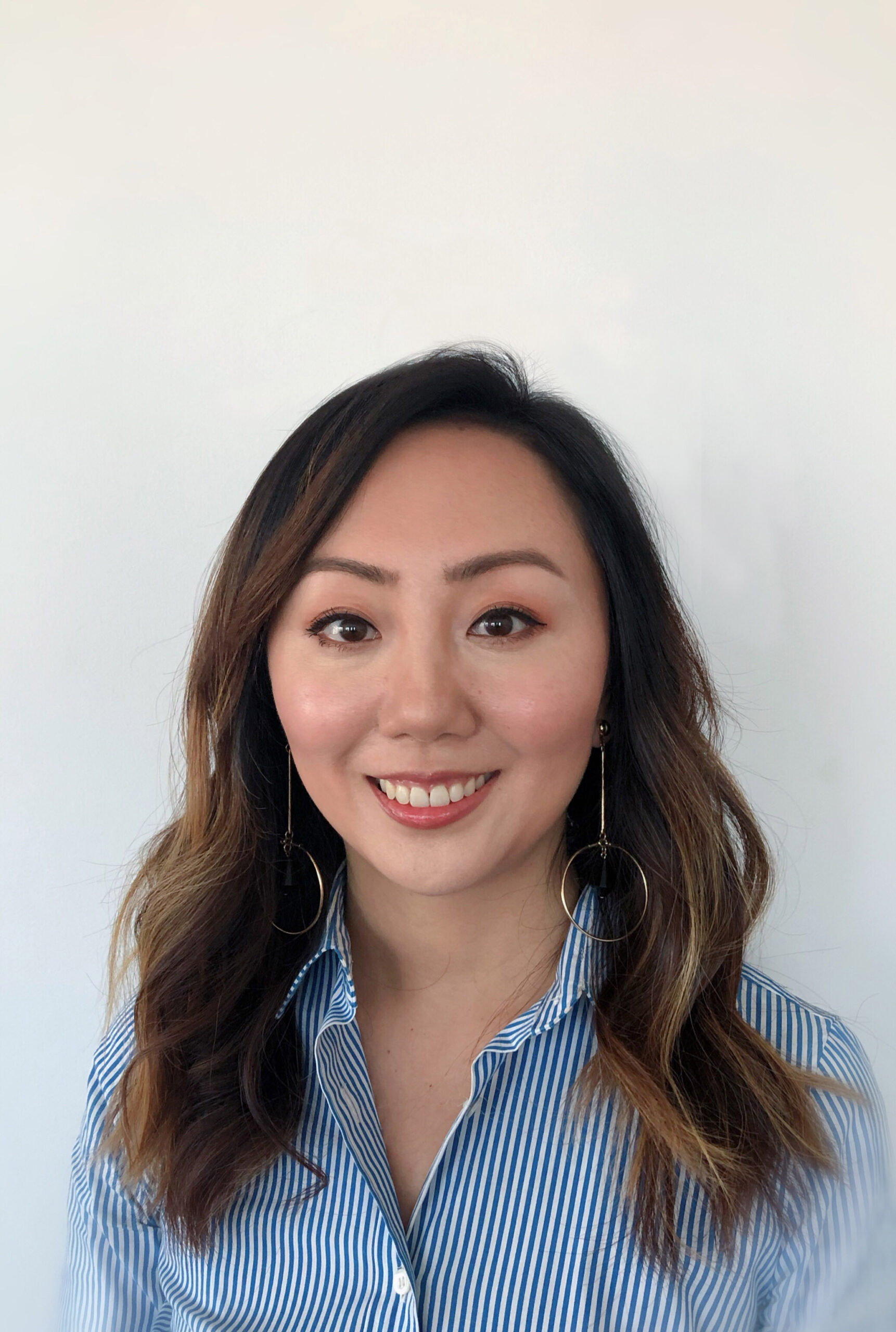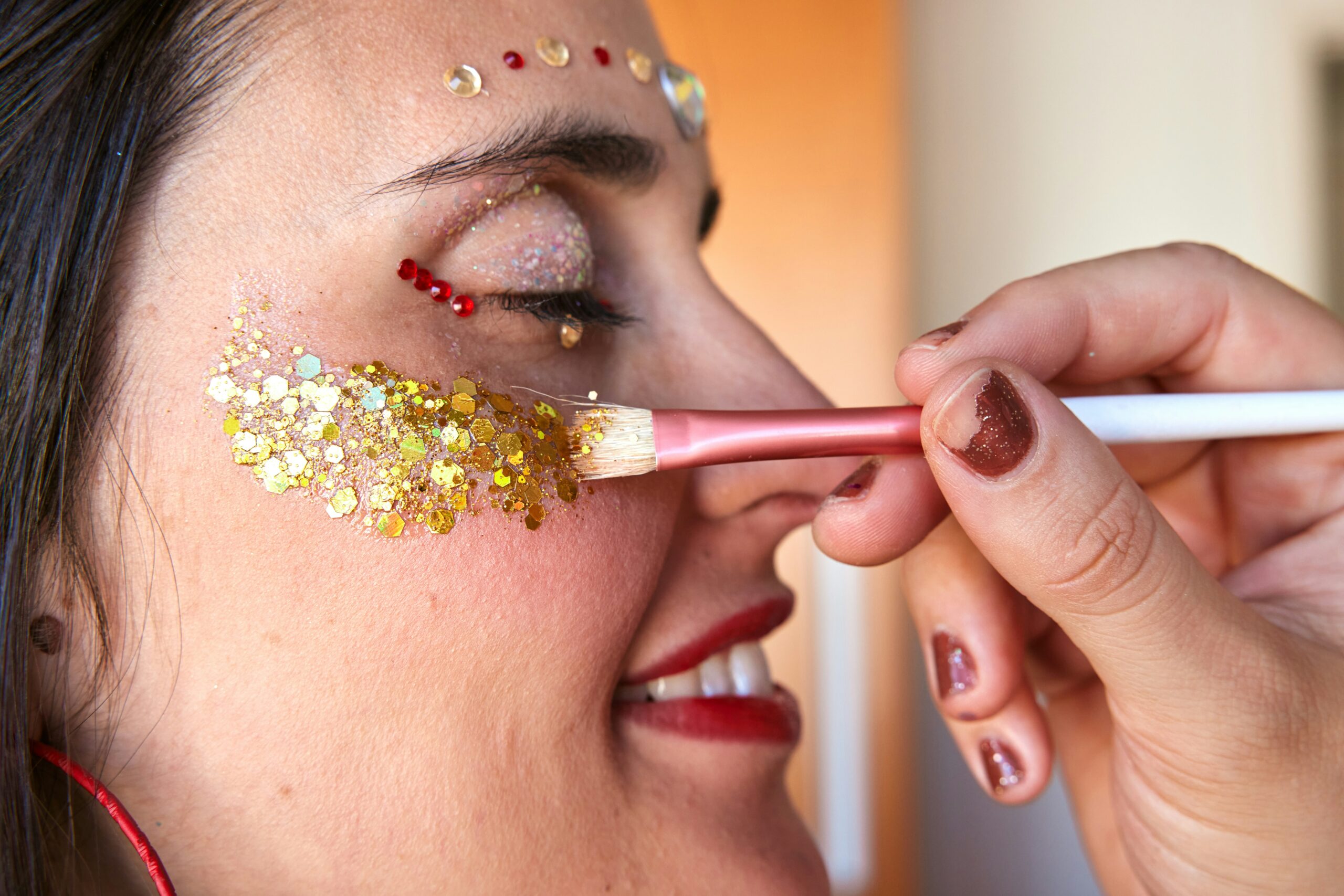As the first light of summer peeked through the horizon, I opened the door to let in some fresh air and was delighted to be greeted by a feathered guest. A beautiful round bird nest of twigs and dried moss was tucked away perfectly between two silk flowers in my wreath.
Inside the nest, a mother sparrow sat very still on her eggs. She looked at me curiously and cautiously from the side of her head, tilting slightly without making a sound. For the next couple of weeks, I watched in awe as she sat patiently on top of what appeared to be four pale-white eggs day and night—her eyes alert for any predators, and her petite body warming up her unborn baby chicks.
Seeing the mother bird hard at work reminded me of my first pregnancy and all of the mixed emotions that came along with my own incubation period, during the COVID-19 pandemic. The world did not seem welcoming, as an unknown virus had paralyzed almost every corner of the earth.
I was joyful about the life growing inside of me, but it was blended with a shade of worry as I wanted to protect the new life from foreign invasion. I wanted to keep my baby inside, where it would be safe.
To ease my anxiety and distract me from the helpless reality of pregnancy during the pandemic, I welcomed work. I was a young doctor who recently finished residency training in psychiatry and moved to a new city to start a family. Armed with theories and knowledge, I channeled my own experiences into actionable tools to help others navigate similar emotions. I kept busy seeing patients online, and I felt lucky to work from the safety and comfort of my home, while some of my medical colleagues did not have that luxury.
Outside of work, social life was limited as everyone was isolated, and I longed to have someone guide me through pregnancy and to feel a sense of camaraderie. My girlfriends lived in different states, and the weight of not knowing what to expect—pregnancy or otherwise—was heavy.
Unexpectedly, my wish came true in a twist of role reversal—from my patient.
Georgina (name and details are modified to protect patient privacy), who came to see me for evaluation of adult ADHD, was in her late twenties and worked in marketing. When she switched from the office to working from home, it was difficult for her to concentrate enough to complete her work. As her tasks piled up, she became increasingly stressed.
She told me she had set up a workstation in her bedroom, but would have her TV on in the living room with the news blasting, her Instagram open on her phone, all while trying to work at her computer simultaneously. The fear of missing out was eating up her limited attention capacity.
We first worked on setting up a proper new routine at home and had her go on a news and screen ‘diet’. That calmed her—but she still found herself procrastinating when completing her tasks. We then tried to have her do the Pomodoro method of concentrated work at 25-minute intervals punctuated by short breaks. It helped her complete certain smaller tasks, but a five-minute break would soon turn into an hour, and her days were lost managing the timer instead of managing her work. The detail-oriented tasks were still left untouched on the shelf.
Meanwhile, her boss pressured her and gave feedback that her performance was slipping. Finally, after exhausting other non-medication methods, we settled on a very low-dose trial of medication, which was an overnight success. She was very grateful to finally produce work she was proud of and not lose her job.
One day, I logged onto our session to follow up on how she was doing, and she jumped to share the good news of becoming pregnant. She had a bright-eyed look and even through the screen, I felt her exuberance. We discussed the pros and cons of continuing the medication, as well as her concerns and questions. She decided to pause the medication just to be safe for the baby—but to continue seeing me for supportive therapy during this transition time.
I was happy she shared the news with me and looked forward to seeing her every other week. Soon after, I had my own good pregnancy news, but to keep my professional boundaries, I did not tell her. And since we were meeting online, you could not tell from our floating heads that our bodies were undergoing massive changes.
Over the next few months, we discussed how to manage her productivity, her reactions to the pregnancy, and her worries and fears. Hearing someone voice them out loud gave me a sense of companionship, and as I cheered her on, I was cheering myself on as well.
Since her pregnancy was a bit ahead of mine, she was giving me a preview of what was to come as my symptoms were almost in lock steps behind hers. Initially, she was so nauseous she couldn’t keep much food down; then, a few weeks later, I, too, had the smell triggers that would send me hunched over the toilet.
After the first trimester passed, both of our nausea subsided, but other symptoms started. She was irritable and cranky one day and happy and worry-free the next, and my mood swings were wild, with highs and lows, too.
She was alarmed about how much weight she was gaining, and I, too, saw my weight on the scale with numbers I had never seen before. She would tell me how she slept poorly because of the aches and pains, and some nights, I couldn’t get comfortable and would toss and turn all night. These visits were making me feel less alone, all the while I offered her a safe space to reflect, she also provided me with the same sense of comfort.

I thought about telling her I was also going through pregnancy, but I bit my tongue many times. I wanted her to feel these sessions were about her—and I was afraid disclosing my pregnancy would change that somehow. My professional training taught me to be a blank canvas for patients to project their thoughts as much as possible and only disclose something personal if it was to the patient’s benefit.
In this case, I felt my urge to share my news was more about me relating to her as a friend instead of me relating to her as her doctor. I wanted to tell her—but I also didn’t want to tell her. What if she started to ask me more about my life? Was I obligated to say more since I opened this door? As a young psychiatrist, I was not yet adept at navigating this blurring boundary line. Never mind—it’s best to keep things as they are, I thought to myself. Still, a part of me wondered if our sessions together were helping her to feel connected as well while the whole world was isolating.
Pretty soon, it was December, and the empty streets were eerily quiet during the holiday season. We were more than nine months into the pandemic lockdown already and the virus showed no sign of abating. Georgina and I were both in our last trimesters. The hospital systems were still overwhelmed by the daily death toll and overflow of ICU patients. Medical resources were limited. All other departments in the hospital, including the labor and delivery unit, had to absorb the tsunami of patients coming from the emergency room. All elective or non-urgent procedures were canceled.
Instead of the usual practice of having more privacy, six women would share a room after going through mandatory daily COVID testings, and no visitors were allowed due to the contagious risks. Georgina was going to have to deliver her baby alone. I couldn’t imagine giving birth to my baby without my family by my side, but somehow, knowing she would do it made me feel a bit braver.
I debated again whether to tell her as a way of showing solidarity. Maybe it would help her to know she was not alone, but I worried she would wonder why I had never said that before? Would that break her trust in me? Then I gave myself a pass that if she asked me, I would tell her. But she never asked.
I felt guilty about not telling her and decided I would be available for her in case she needed me postpartum, despite my own maternity leave. I could not imagine not being there for her after all this time we shared—but all that came out was, “I will be thinking of you,” I said.
Soon, I got an email from Georgina titled “Welcome to the World, Adam.” Attached was her baby boy’s picture with eyes closed, an adorable grin, and a note saying all went well. Before long, I delivered my baby too. I thought of Georgina when I was in the delivery room and wondered what the pain was like for her.
On the ward, holding my baby in my arms, I was amongst other mothers separated by thin curtains. I could hear them reassuring their families on the phone, babies crying, and the tender whispers. Our bodies were recovering from having just birthed the next generation of humans, while our spirits were high from the resilience within. The common struggles were initiations for us to join the tribe of motherhood, and I felt our collective strength. I imagined Georgina holding her baby behind the curtain beside me, even though I had never met her in person. I wondered if other new mothers were as lucky as me to have had a Georgina in their lives during this vulnerable time.
Some time had passed before we resumed our sessions. Georgina continued to share her journey with me. I continued to offer her the space to listen and for her to make sense of all the changes and her feelings. Pretty soon, the topic progressed from the challenge of breastfeeding to how difficult it is to take care of a newborn, to her resentment of her husband not helping enough and her exhaustion. Then there was the returning to work anxiety, and we resumed her ADHD medication.
As time passed, Georgina didn’t need me as much as she did. Her schedule got busier, and we spaced out our visits. I never got to tell her how I felt during our pregnancies together. I wish I could have shared how the supportive therapy she asked for was giving me the support I needed as well. I wish I could have thanked her for her guidance.
Looking back on my earlier professional years, I would have advised myself to follow my instincts and not hesitate as much. Over time, I have become less rigid about disclosing personal information. I learned that as much as there is value in being a blank canvas, there is also something to be said about being human to patients. As mothers, our shared identity allows us to lean on each other, grow together, and lift each other up. We may play other roles in life, but in the humbling experience of motherhood, we are equals.
Outside, the loud chirping tells me that the baby chics have finally hatched. The mama bird has prevailed. I smiled and thought to myself, the next time I see Georgina, I will tell her I am a mother, too.
Author
-

"Dana Wang, MD, is co-founder of Rivia Mind, a comprehensive outpatient mental health service group with a mission to set a new standard for quality of care, and to make it accessible and affordable to the community. Dr. Wang graduated on the Dean’s Honors List from the University of California, Berkeley. She pursued a medical degree at Ben Gurion University, affiliated with Columbia Medical Center, where she was elected class representative and received the Dean’s List Honor-Distinguished Service Award. Afterward, Dr. Wang completed her psychiatry residency training at Harvard Medical School, during which she also completed a fellowship in psychodynamic psychotherapy at the Boston Psychoanalytic Society and Institute. In her spare time, Dr. Wang enjoys writing about moments that happen in treatment and psychoanalyzing characters in popular shows. She is currently authoring her first book on resolving family conflict and intergenerational trauma. "
View all posts




